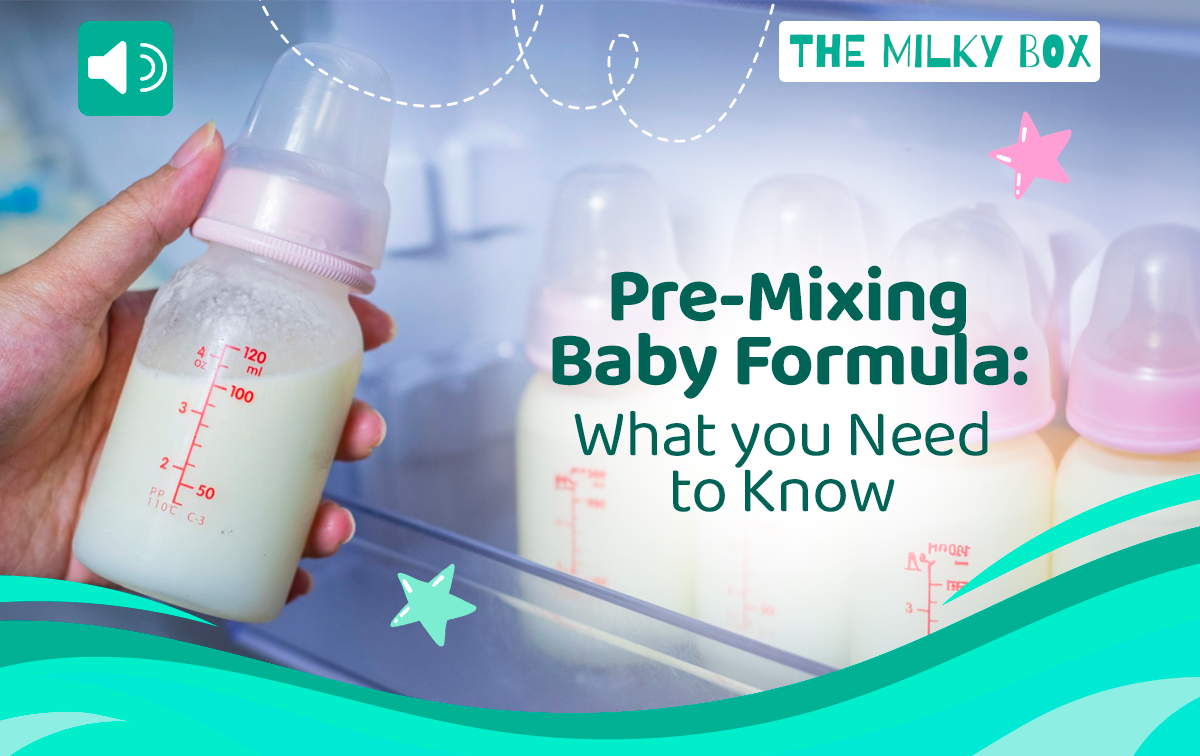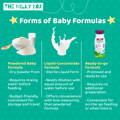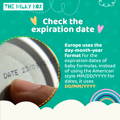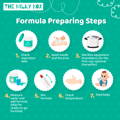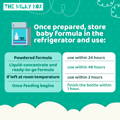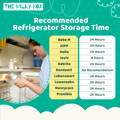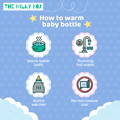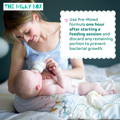Always follow the instructions on the container for the correct formula-to-water ratio unless advised differently by a healthcare professional. Incorrect ratios can lead to under or overfeeding, dehydration, water intoxication, and digestive issues.
In a study comparing infants fed ready-to-feed formula versus powdered formula, those on powdered formula gained more weight, and a higher percentage of them became overweight by 6 months. The study suggests that errors in mixing powdered formula could be the main reason for these differences, emphasizing the importance of getting the formula-to-water ratio right when preparing powdered formula.
Remember to add the powdered or concentrated liquid formulas to measured water, not vice versa. For liquid concentrate, you need to mix equal amounts of water and formula.
Remember to clean the top of the can and shake well before adding the formula to water.
Using tap water for baby formula is generally safe as long as it comes from a safe and reliable water source. Follow local guidelines and recommendations regarding the safety of tap water for infants. Using filtered or high-quality spring water packaged in glass bottles is the preferred choice.
For infants younger than 2 months old, premature, or with weakened immune systems, it’s recommended to boil water and allow it to cool for about 5 minutes before using it.
Once opened, cover and keep the can of liquid-concentrate formula in the refrigerator for up to 48 hours.

